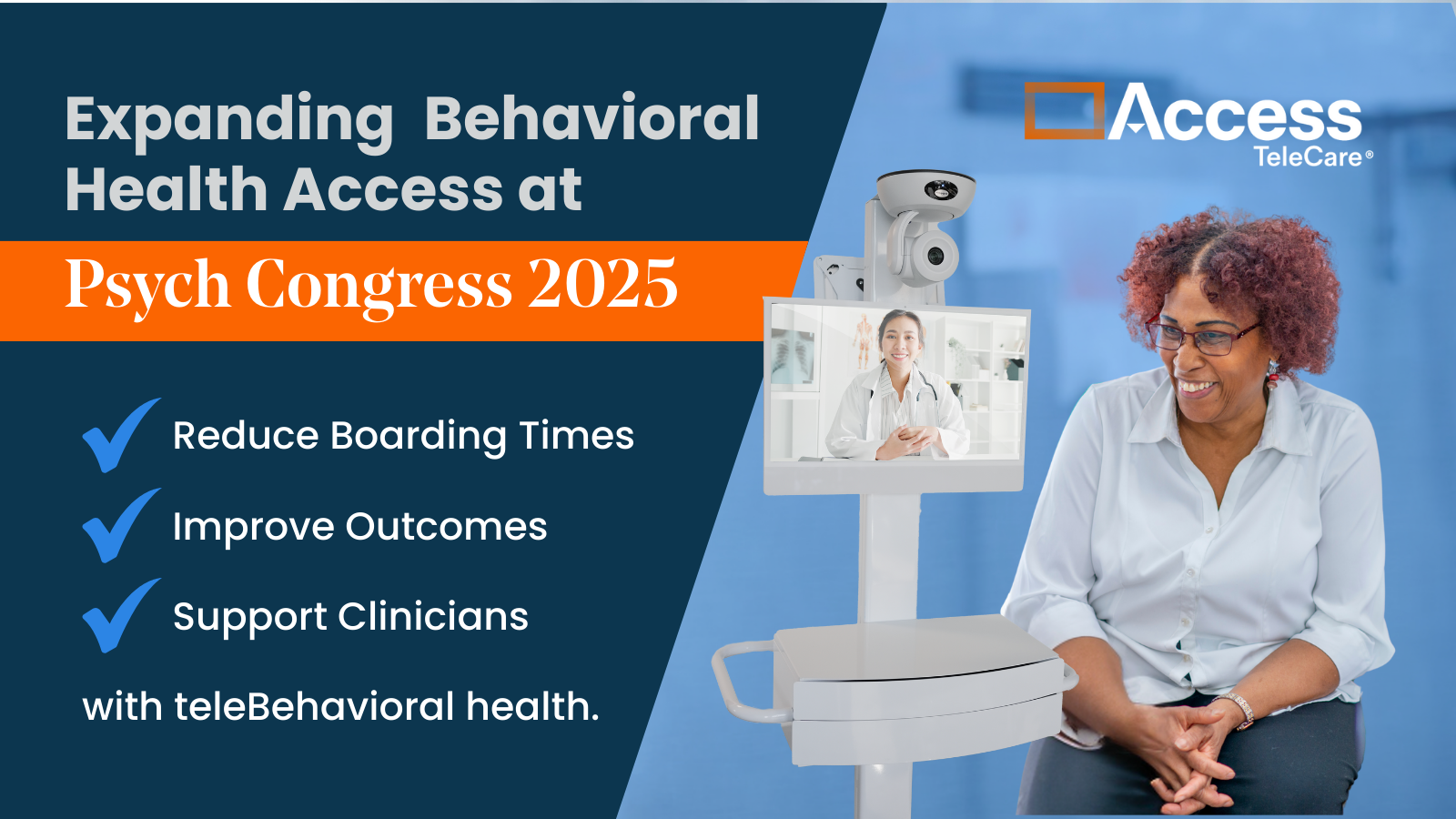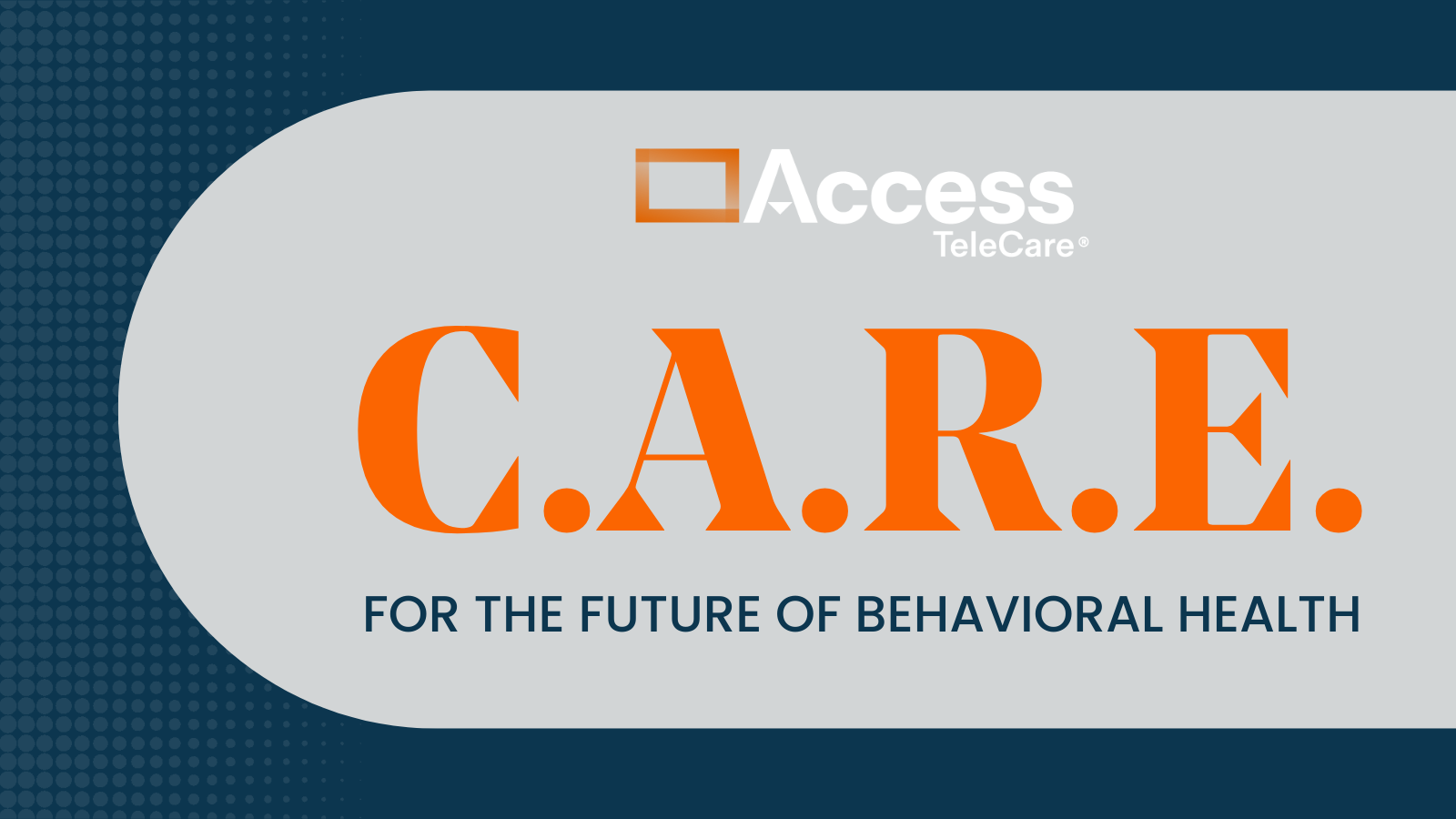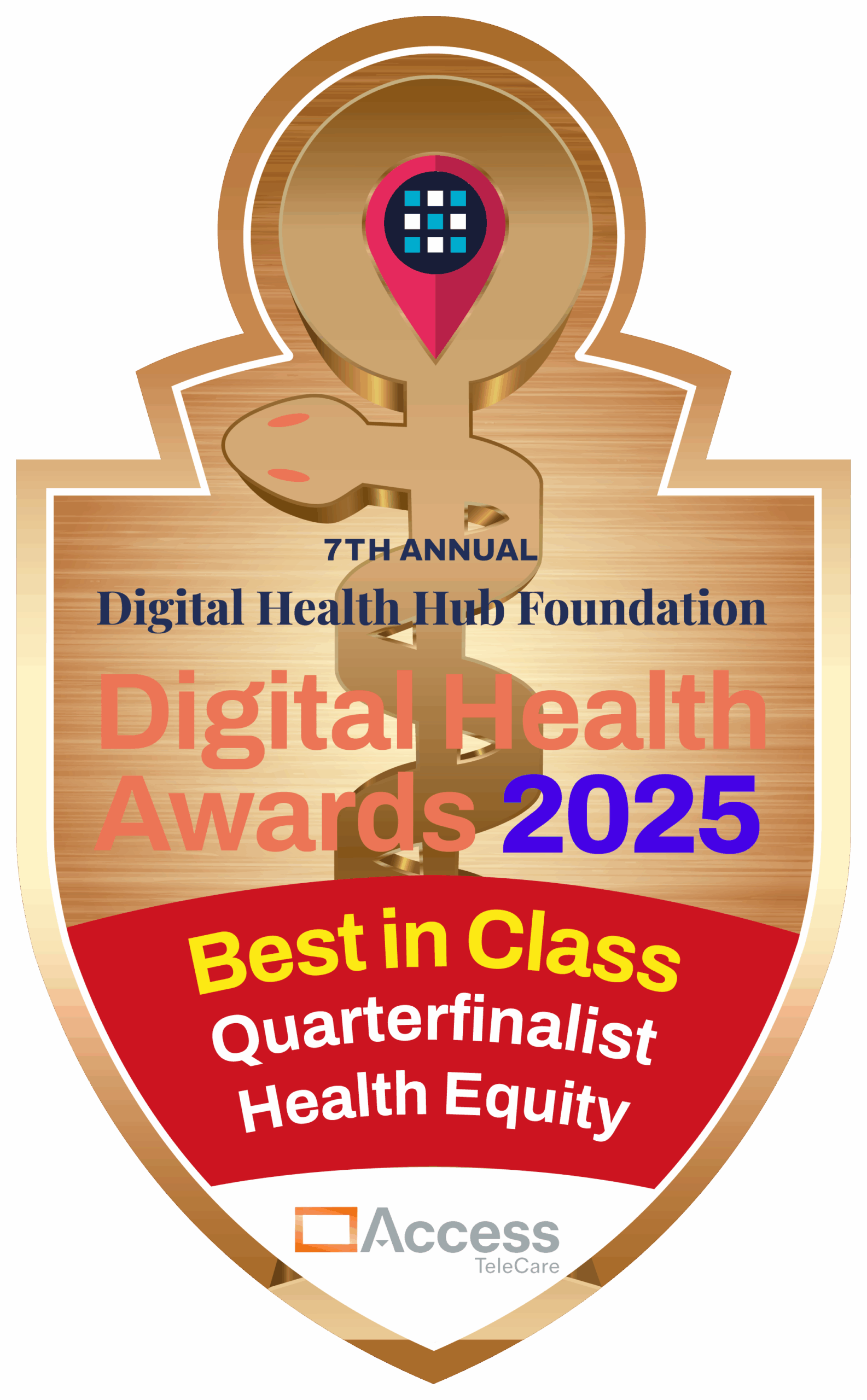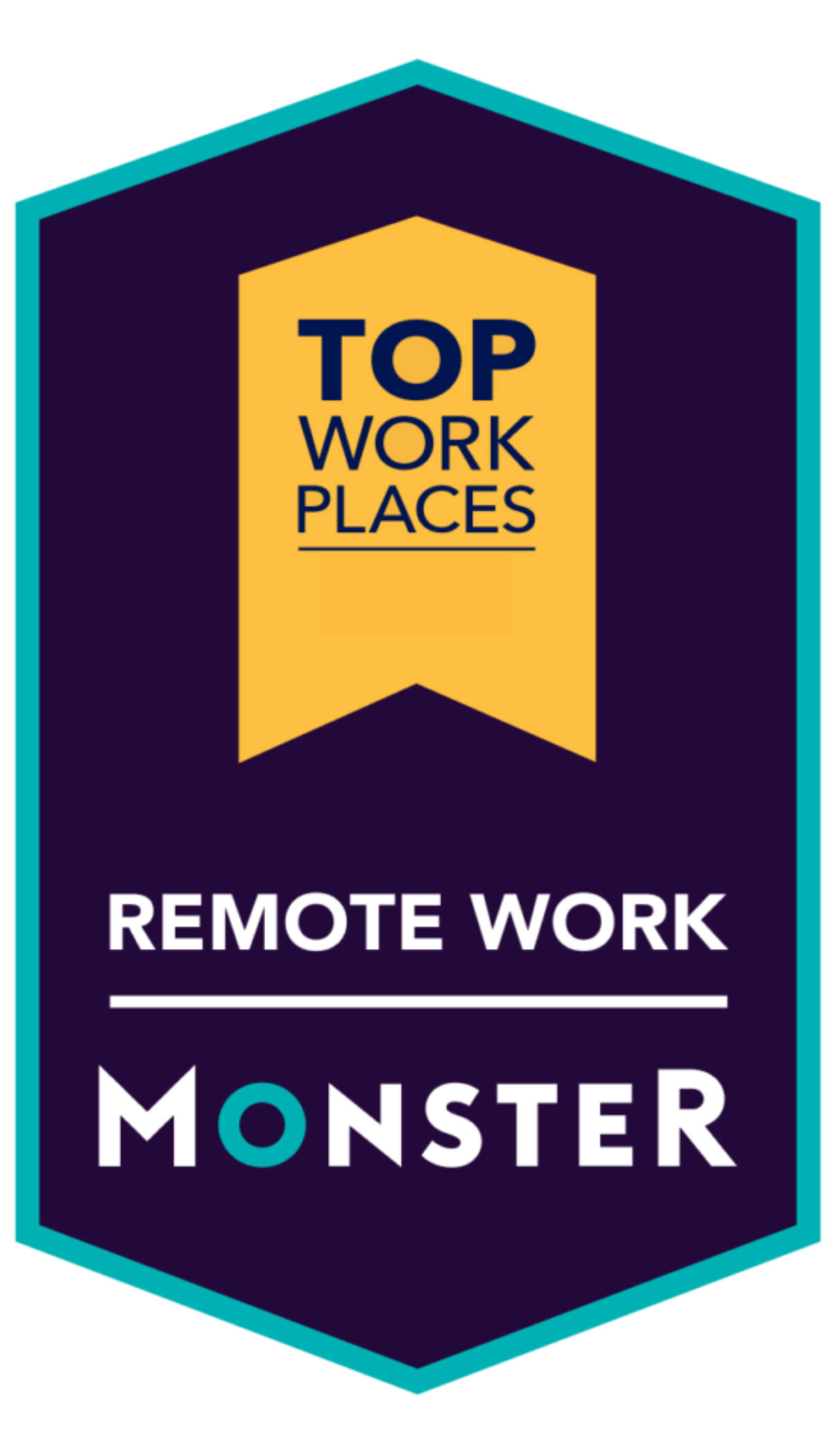Adapted from a presentation at the 2020 Telemed IQ Summit sponsored by Access TeleCare’s team.
At CaroMont Regional Medical Center (CRMC), the psychiatric resources of the emergency department were stretched thin in 2016. Char Biamonte, director of psychiatry, explained to Telemed IQ Summit attendees how telePsychiatry decreases ED overcrowding.
“I used to like the color purple until I got to CaroMont,” Char Biamonte, Director of Psychiatry for CRMC, told attendees at the Telemed IQ Summit. “Not anymore. At CaroMont, ‘code purple’ means there’s too many psych patients in the ED. When I got there in 2012, we had 1,295 hours of psych code purple in the ED. Our goal for 2020 is 10 hours a month.”
How did CaroMont reduce ED overcrowding from 1,295 annual hours in code purple to a goal below 120? By treating mental health patients faster, with telemedicine. “It’s a three-legged stool with us,” says Biamonte. “It’s the ED physicians, the psych team and (Access TeleCare).”
TelePsychiatry fills an important gap
Emergency departments are built for medical emergencies, not mental health treatment. Yet, when people in the community experience psychiatric distress, they tend to wind up in the ED. “The ED doctor sees the psych patient come in and they’re like, ‘Oh my, this is going to take some time,’” says Biamonte.
This is because the ED intakes and holds psychiatric patients until a psychiatrist determines whether to move the patient into inpatient psychiatric care or to release the patient for home with outpatient care instructions. It’s just not the sort of question that the average emergency doctor feels comfortable in answering, especially in borderline cases.
Around the country, the process bottlenecks at this exact point of assessment, with psychiatric care patients waiting an average of three times longer than other ED patients, at an average boarding time of 8-34 hours. Beds fill up. The emergency department begins to overflow.
At CaroMont, the increased volume of mental health patients diverted resources away from other emergency patients, triggering an overflow of more than 1,200 “Code Purple” hours in the ED the year Char Biamonte arrived. That number increased to more than 1,700 hours. Today, they average around 10 hours per month.
TelePsychiatry assessments on-demand
CaroMont connect patients directly with Access TeleCare psychiatrists in cases where the decision to discharge or admit is unclear to the onsite ED physicians, and when an on-staff psychiatrist is not immediately available. If no one is onsite to make the call, Access TeleCare psychiatrists connect with the patient and with onsite staff, and a determination is made.
With faster, more accurate determinations from on-demand psychiatric experts, patients’ length of stay is reduced. The bottleneck is cleared, and beds are freed up for other emergency services.
By launching telePsychiatry, CaroMont reduced length of stay for psychiatric patients by 70% in the Emergency Department and increased the medically-appropriate discharge rate to 65%. CaroMont reduced its annual “Code Purple” hours from over 1,700 to just 148. In 2020, their goal is below 120 hours in Code Purple.
Beyond the Emergency
Department
And, the positive impact of Access TeleCare’s telePsychiatry program does not stop in the ED. Because psychiatry patients received faster consultations, and the quality of care plans for these patients is so improved, CaroMont is getting the right patients into its inpatient program, reducing discharge rates from that program as well. The patients who need outpatient care are not sent to inpatient as frequently. The patients who need inpatient care are not sent home mistakenly as frequently. CaroMont has fewer readmissions.
In short, their system works today. The right people receive the right care, when they need it.
With almost a 90 percent reduction in emergency room overflow, it is clear telePsychiatry is making a difference in Gastonia, NC.
***
Special thanks Char Biamonte, Ph.D (c) MA, BSN, NE-BC, RN-BC, FACHE, director of Psychiatry, CaroMont Regional Medical Center for her time and expertise in presenting at our Telemed IQ Summit. To learn more about the CaroMont experience and more information on Access TeleCare behavioral health services, please contact us for a working session.









